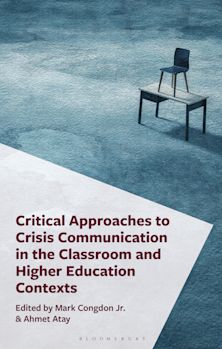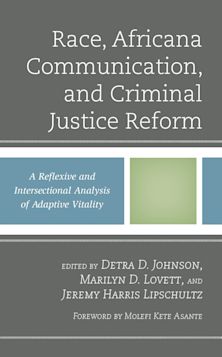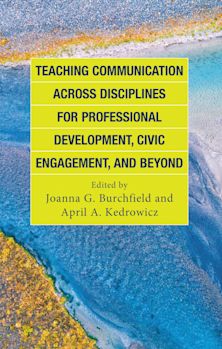Communication and Identity in the Classroom
Intersectional Perspectives of Critical Pedagogy
Communication and Identity in the Classroom
Intersectional Perspectives of Critical Pedagogy
This product is usually dispatched within 2-4 weeks
- Delivery and returns info
-
Flat rate of $10.00 for shipping anywhere in Australia
Description
This collection, edited by Daniel S. Strasser, was unearthed from the demand for more inclusive and expansive dialogues on intersectional identities, ethnicity, neuro-diversity, physical ability, religion, sexual orientation, class, and gender performance in academia. The autoethnographic and narrative accounts within Communication and Identity in the Classroom: Intersectional Perspectives of Critical Pedagogy offer personal, experiential perspectives on the power of identity to influence educators in classroom and mentoring spaces. The multiple perspectives offered here promote dialogue about how personal experience provides the ground upon which we build more dynamic relationships and communities. The contributors’ experiences offer examples for a more expansive understanding of privilege, oppression, and identity. These seeds for conversation nourish discourses that build new communicative bridges between educators and students as we prepare to face the next interaction, class, and challenges and opportunity for resilience. This collection invites educators to be critical of their bodies, of their politics, of their intersecting identities, and acknowledge in words and actions that our bodies are political. Throughout this collection the contributors expand upon theories and methods of critical communication scholarship, radical love, and intersectionality using their embodied pedagogical experiences to ground the scholarship.
Table of Contents
Introduction: Communication and Identity in the Classroom: Intersectional Perspectives of
Critical Pedagogy
Daniel S. Strasser
SECTION ONE: Autoethnographic Accounts of Critical, Intersectional Pedagogy
Chapter One
Finding Space and Place within the Ivory Tower: Conversations on Intersectionality, Voice and Silence
Tomeka M. Robinson and Jahnasia Booker
Chapter Two
You Are Not My Child, I Am Not Your Parent: A Case Against the Infantilization of Students
Meggie Mapes and Benny LeMaster
Chapter Three
Empath(olog)ic Pedagogy: An Autoethnography of Health, Class, and the Classroom
Brandi Lawless
Chapter Four
“Bad Hombre” in the Classroom: Pedagogical Politics of Performing “Brown Man” in a Conservative Time
Antonio De La Garza and Andrew R. Spieldenner
Chapter Five
What Difference Does it Make?: Navigating the Privileged Halls of Academia as a Queer Black Woman Professor
Elizabeth Whittington
Chapter Six
Teaching While Vulnerable: Connection throu
Product details
| Published | 22 Aug 2022 |
|---|---|
| Format | Paperback |
| Edition | 1st |
| Extent | 218 |
| ISBN | 9781793618078 |
| Imprint | Lexington Books |
| Dimensions | 230 x 154 mm |
| Series | Critical Communication Pedagogy |
| Publisher | Bloomsbury Publishing |
Reviews

ONLINE RESOURCES
Bloomsbury Collections
This book is available on Bloomsbury Collections where your library has access.


































